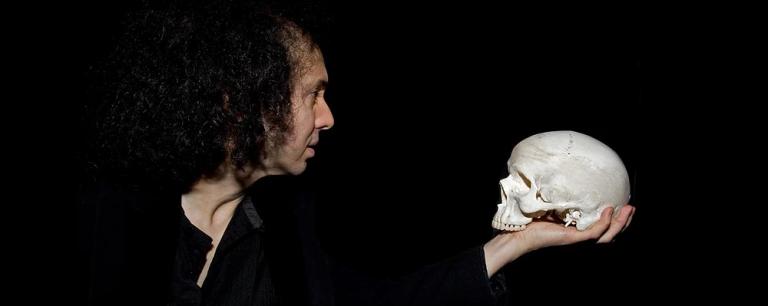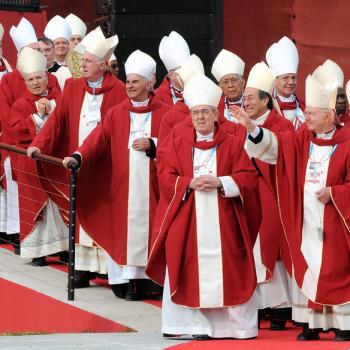He was a student at a Lutheran university. He had always struggled with depression, but then life started adding its blows. His father, whom he was very close to, died suddenly, and he couldn’t shake the grief. His mother remarried; he couldn’t stand his stepfather; and they were always fighting. He had a girlfriend, but her family turned her against him. On top of all of this, he felt under a lot of pressure to do something he really didn’t want to do. He started feeling suicidal.
And yet, on the surface, the young man seemed to have everything going for him. He had money. He had a secure career path to a prestigious, well-paying job. He had lots of friends. He was popular. He was at the top of the social order. He was, in fact, a Royal.
His name was Hamlet, Prince of Denmark. I got to know him so well because every year for some 20 years I taught the play that William Shakespeare wrote about him in my “Introduction to Literature” class.
His most famous lines are a meditation on suicide (Act III. scene i. lines 1749-1775). Is it better “to be,” or “not to be”? In other words, is it better to exist or not exist? That, indeed, is the question–for suicides and also for everyone.
As Hamlet thinks about this question, contemplating all the bad things that happen in life, he decides that he would really prefer “not to be.” Death would “end the heartache.” And he could bring it on. A bare dagger could give him peace. “To die–to sleep. To sleep–perchance to dream” (III.i.1756-1757). The closest thing we experience to death is sleep. And yet, he realizes sleep does not take away our existence. We dream. What if there is life after death? ) “Ay, there’s the rub” (III.i.1758).
Hamlet begins considering what he learned in church and at Wittenberg University. If there is life after death, he cannot escape his existence after all. “Not to be” is not an option. And after death comes judgment.
Earlier in the play, Hamlet laments, “O. . .that the Everlasting had not fix’d / His canon ‘gainst self-slaughter! (I. i. 335-336). He knows from his Catechism that the Everlasting God in His Law as set down in Scripture forbids murder, which includes self-murder.
Roman Catholicism teaches that suicides are lost eternally, since they die in a state of mortal sin without the possibility of repenting. Though other Christians agree, Luther did not, saying that suicides are victims of the Devil. Hamlet, who worries about how the Devil is trying to “abuse” him (II. ii. 1673-1678), does not really believe that either, as we see later when his girlfriend, Ophelia, actually does (apparently) commit suicide. But Hamlet has other reasons for fearing God’s judgment.
Hamlet realizes that he must consider his question in light of eternity. If he takes his own life, he may not escape his troubles; rather, he might bring upon himself troubles far greater in Hell. “The dread of something after death. . . puzzles the will/And makes us rather bear those ills we have/ Than fly to others that we know not of” (III.i.1771, 1774-1775).
Basically, Hamlet decides “to be.” He rejects suicide. His main reason is that God says, Don’t do it. Hamlet wishes that the Everlasting had not fixed his canon against self-slaughter, but He has. So Hamlet bears those ills he has.
Later, Hamlet’s reluctant act of obedience blossoms into a more positive faith. Hamlet’s life is saved by an uncanny series of unlikely coincidences. He realizes that “There’s a divinity that shapes our ends, / Rough-hew them how we will” (V.ii.3659-3660). “There’s a special providence in/ the fall of a sparrow” (V.ii.3863-3854), and this divinity, this providence, is guiding his life.
The Prince of Denmark comes to realize that Heaven has made him its “scourge and minister” (III.iv. 2578) to bring his father’s murderer to justice–notice the doctrine of vocation–but he now stops his “deep plots” and his agonizing. He will let events unfold, trusting in God’s providence to bring about the outcome and to use him according to His will:
. . ..there’s a special providence in
the fall of a sparrow. If it be now, ’tis not to come; if it be
not to come, it will be now; if it be not now, yet it will come
the readiness is all. (V.ii.3853-3856)
I once had an actual student in my literature class who told me that she had been contemplating suicide, but that Hamlet talked her out of it.
Photo: Mid-Atlantic Center for the Arts & Humanities, Hamlet, Rudy Caporaso, REV Theatre via Flickr, Creative Commons License

















